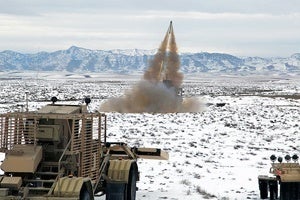November 1, 2011 — Experts estimate that hundreds of thousands of Iraqi civilians have died since 2003 as a consequence of the United States war in Iraq. But John Tirman thinks Americans haven’t paid enough attention.
Still, he says, gathering accurate data about civilian deaths during wartime is essential both for moral and practical reasons.
“If we don’t know what happened, we don’t know what our responsibility is,” said Tirman, executive director and a principal research scientist at the MIT Center for International Studies. He spoke Oct. 25, 2011 as part of the Harvard Injury Control Research Center 2011-2012 seminar series.
Tirman was involved with Johns Hopkins-led studies that estimated that 650,000 Iraqis died between 2003 and 2006 while war raged in their country. He also wrote the 2011 book The Deaths of Others: The Fate of Civilians in America’s Wars, which examined civilian deaths during the Iraq, Vietnam, and Korean wars, as well as World War II.
Throughout his research on the Iraq war, Tirman said he was “struck by the lack of any information about what was happening to Iraqi civilians.” Questions were not being asked about the extent of the violence or its nature, he said.
Morally, though, it’s essential for the American public to focus not just on American lives lost in war, but also those of people in other countries, he said. Beyond that, there are practical considerations; high numbers of civilian deaths can damage the U.S. reputation abroad and make it difficult to achieve foreign policy goals.
While many civilian deaths during wartime are accidental, others are not. Tirman noted several incidents that severely marred the reputation of the United States: the 1968 My Lai, Vietnam massacre of several hundred unarmed civilians; and in Iraq, the alleged killing of 24 civilians in Haditha by American troops, and the torture and abuse of prisoners at the Abu Ghraib prison.
“There’s a widespread perception—not just in Muslim societies, but in many countries—that not only are we brutal, but we’re callous about our brutality,” said Tirman.
Tirman admitted that he’s not sure how to get American officials, and the American public, to care more about the war-related deaths of people in other countries.
But he stressed the importance of uncovering the true scale and nature of civilian casualties, both to help inform future military decisions and to “awaken the American public to the real costs of war.”
In the aftermath of the Iraq war, he added, “I think we have an obligation to help Iraq reconstruct not only physically but also emotionally, to come to terms with this incredible trauma. And we can’t do that well if we don’t have an accurate understanding of the war’s physical, social, and emotional cost.”
–Karen Feldscher
photo: The U.S. Army
